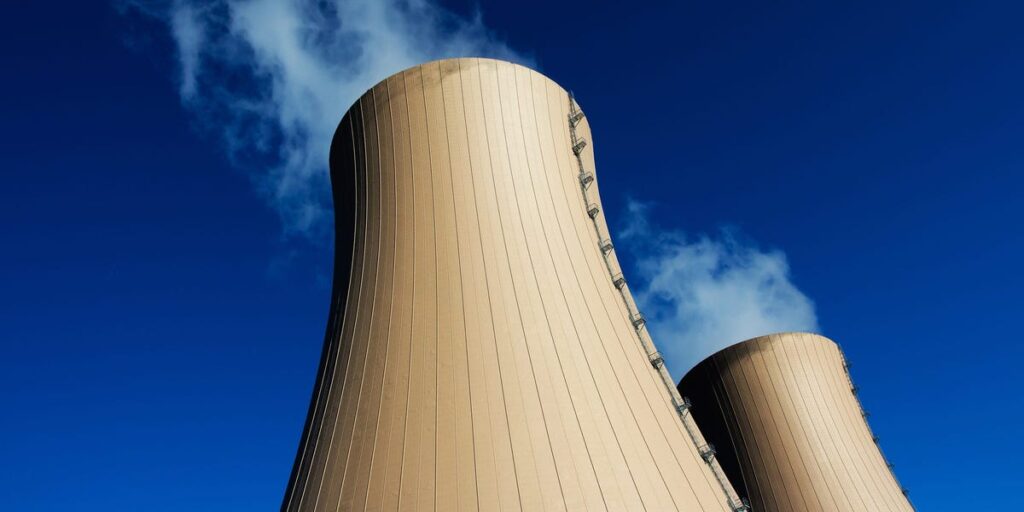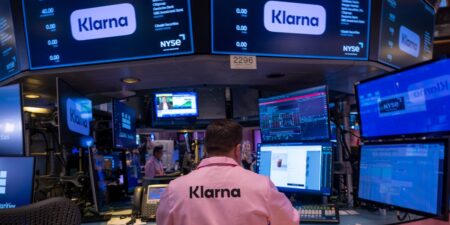Blank-check mergers are back on the cards — at least for nuclear startups.
Terra Innovatum, a company developing micro-modular nuclear reactors, is one of the contenders. It’s pursuing a SPAC by merging with GSR III Acquisition Corp, with the aim of raising around $230 million at a $475 million pre-money valuation.
Its chief business development officer, Giordano Morichi, told Business Insider that the company is opting for a SPAC because the startup sees it as a smoother alternative to an IPO.
Morichi said the startup didn’t want to go through a funding round because it “wanted a more regulated fundraising environment.”
Morichi, who joined the company last year to restrategize its business, has witnessed growing investor appetite for SPACs. He said the transaction’s profits would help Terra propel the commercialization of its small-scale nuclear reactor technology.
The team has earmarked around $70 million to build its first unit, a cubic reactor that aims to deliver one megawatt of electricity through its standard fuel rods. The startup anticipates generating this through the listing, which is set for early autumn.
The SPAC process is much faster than that of a traditional IPO, and one that suits a pre-revenue company, said Alex Gadotti, capital markets advisor at Terra Innovatum. “It gives much, much more certainty on the proceeds, and the stock gives more control in the process than a normal IPO,” he added.
Terra Innovatum isn’t alone in forgoing an IPO. Nuclear upstarts Terrestrial Energy and Eagle Energy Metals are also planning to merge with special purpose acquisition companies.
Tapping into the SPAC comeback
This year has been something of a turnaround for SPACs, which had their moment in the sun in 2020 before they were marred by challenges and disappointing exits. High-profile listings from 2021, such as BuzzFeed and Grab, plummeted the following year, dipping over 50% in value year on year. Investors became wary.
This year, there’s been a steady uptick in SPAC activity. In the US, SPACs raised a total of $11 billion in the first half of 2025, compared with the $2 billion raised in the same period in 2024, per Bloomberg data. Notable listings include Sam Altman-backed nuclear company Oklo’s merger with AltC Acquisition Corp, and the upcoming listing of firearms company GrabAGun, which counts Donald Trump Jr. as a board member, merging with Colombier Acquisition Corp. II.
Some investors have pointed out the parallels between the electric vehicle SPAC boom of 2021 and the trajectory of nuclear startups today.
EV heavyweight Fisker went public via a SPAC in 2020 and later went bankrupt, while ChargePoint has faced financial challenges since its 2021 SPAC.
Morichi said that the EV juggernauts that fell from grace post-SPAC had their lofty, multibillion-dollar valuations to blame, but Terra Innovatum’s $475 million pre-money valuation is much more “reasonable” for investors. The company intends to raise around $230 million, but this is subject to change as it has yet to disclose its pipeline.
AI has catalyzed a frenzy for nuclear energy
Terra Innovatum is building small-scale nuclear reactors, a technology that’s been gaining investor traction as AI juggernauts scramble to power their energy-intensive data centers.
Companies spearheading the AI boom, from Google and Microsoft to Nvidia and OpenAI, have increasingly considered nuclear energy a viable source to meet AI’s sky-high energy demands. Amazon took a stake in SMR developer X-Energy last year, while Google struck a nuclear energy deal with Kairos Power. This has given nuclear energy startups a boost as they find a purple patch to scale.
Terra’s thesis is that energy generation is bottlenecked by energy distribution, and developing micro reactors can tackle both issues.
“Having a reactor that can be next to a factory or hospital can be one of the biggest upsides,” said Morichi. “To do so, the reactor needs to be extremely safe. It needs to be small enough so it can’t physically explode.”
Often, hydrogen explosions are the key cause of concern in nuclear reactors; the startup uses helium gas as an alternative to hydrogen to minimize this risk.
He added that Terra’s micro modular reactors “can’t explode” because they don’t contain water, giving them a higher safety profile.
Morichi acknowledges that other SMR companies may yield a higher energy output. But the company’s selling point has been its scalability. The reactor’s off-grid capability and modular design make it an attractive option for data center companies, he said.
The company is in talks to partner with data center providers, but declined to provide specifics as that information is not yet public.
Unlike many clean energy companies dealing with the financial fallout from Donald Trump’s “Big Beautiful Bill,” the team has actually been emboldened by federal policy that’s “propelling the wind in our sails,” Morichi told Business Insider. The Nuclear Regulatory Commission announced it would be cutting fees for the process of licensing and reviewing nuclear projects, which Morichi said would help bring the reactors to market much quicker.
It’s also avoided any major bruising from the administration’s tariffs that have otherwise hampered supply chains globally. “We have a seamless model for the supply chain. We have secured part of the supply chain in Italy and in the US, and we have different types of partners that will help on those fronts,” he added.
While the listing will be on the Nasdaq, the team ultimately has international ambitions. Energy resilience is not a national issue affecting only the US, but a global problem, Morichi said.
“Because we really want to deploy these reactors globally, it’s important that we work with local entities and industries, not only to propel their own economic state value, but to help us enter the market,” he said.
Read the full article here
















